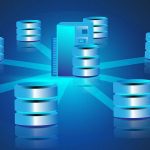Business Intelligence Technologies are tools used to analyze and report data on various operations and sectors of a business. Business Intelligence implementation places companies in better decision making positions. Every company uses some form of a checks and balances system. Some businesses still rely on manual input of data from invoices and receipts while others use a … [Read more...] about What are the Best BI Tools Available in Market for Decision Makers?
Big Data
Learn everything you need to know about big data. Find out how companies are using this revolutionary technology and what it means for your business strategy.
What is ETL?
In our articles related to AI and Big Data in healthcare, we always talk about ETL as the core of the core process. We do not write a lot about ETL itself, though. In this post, we'll give a short overview of this procedure and its applications in businesses. ETL is the abbreviation for Extract, Transform, Load that are three database functions: Extract is the process of … [Read more...] about What is ETL?
6 Tips For Speeding Up Data Analysis
Needless to say, there are many different factors that go into running a successful business or organization. Depending on what type it is, that business or organization will focus on different factors of success. However, the one thing that they all can agree on is the importance of data. No matter what type of data it is, data is what allows for growth and sustainability … [Read more...] about 6 Tips For Speeding Up Data Analysis
Big Data Means Big Money: Why Businesses That Use Big Data Are More Profitable
Big data has dramatically changed the way most businesses operate. While the power of big data has been around for a while, it is only in recent years that companies across various industries have started leveraging it to its full potential. In its simplest form, big data is a collection of information from many sources. This data is usually collected in one of three … [Read more...] about Big Data Means Big Money: Why Businesses That Use Big Data Are More Profitable
Essential Data Science Job Skills Every Data Scientist Should Know
What are Data Scientists? How do you distinguish a genuine data scientist from a dressed-up business analyst, BI, or other related roles? Truth be told, the industry does not have a standard definition of a data scientist. You've probably heard jokes like a data scientist is a data analyst living in Silicon Valley . Just for fun, take a look at the cartoon below Finding an … [Read more...] about Essential Data Science Job Skills Every Data Scientist Should Know
What is big data?
Big data is a term that refers to the massive amount of digital data created and shared every day. Big data can transform how we live, work, and communicate. It can be used to improve everything from public health and urban planning to business and marketing.
Big data is also changing the way we think about privacy and security. The volume, velocity, and variety of big data present challenges and opportunities for organizations and individuals. Regardless, big data is here to stay, and its impact will only continue to grow in the years to come.
What is big data analytics?
Big data analytics is the process of turning large, complex data sets into actionable insights. Businesses use various analytical tools and techniques, including machine learning and statistical analysis, to do this.
Big data analytics can be used to improve decision-making in areas like marketing, operations, and customer service. It can also be used to identify new business opportunities and optimize existing processes. With the help of big data analysis, businesses can gain a competitive edge by using their data better.
Want to learn more about big data? Datafloq has courses available. Contact us to get started.
When was big data introduced?
The term big data was coined in the 1990s, with some giving credit to John Mashey for popularizing the term. However, the concept of big data has been around for much longer.
Where does big data come from?
In the early days of computing, scientists and businesses began to realize that the amount of data being generated was increasing exponentially. As a result, they began to develop new methods for storing and processing data.
Over time, these methods have become increasingly sophisticated and have played a key role in enabling businesses to make sense of vast amounts of information. Today, big data is used in various industries, from retail to healthcare, and its importance is only likely to grow in the years to come.
What are examples of big data?
One of the most common examples of big data is social media data. With over 2 billion active users, Facebook generates a huge amount of data every day. This includes information on user interactions, posts, and even location data. Analyzing this data can help companies better understand their customers and target their marketing efforts.
Another example of big data is GPS signals. These signals are constantly being generated by devices like cell phones and fitness trackers. When combined with other data sets, GPS signals can be used to provide insights into everything from traffic patterns to human behavior. Finally, weather patterns are another type of big data set. By tracking these patterns over time, scientists can better understand the impact of climate change and develop strategies for mitigating its effects.
How do companies use big data?
Companies use big data in marketing, product development, and customer service. By analyzing large data sets, businesses can identify patterns and trends that would be otherwise difficult to spot. For example, a company might use big data to track customer behavior patterns to improve its marketing efforts.
Alternatively, a company might use big data to improve its products by identifying areas where customers are most likely to experience problems. For instance, big data can be used to improve customer service by finding pain points in the customer journey. Ultimately, big data provides companies with a valuable tool for gaining insights into their business operations.






